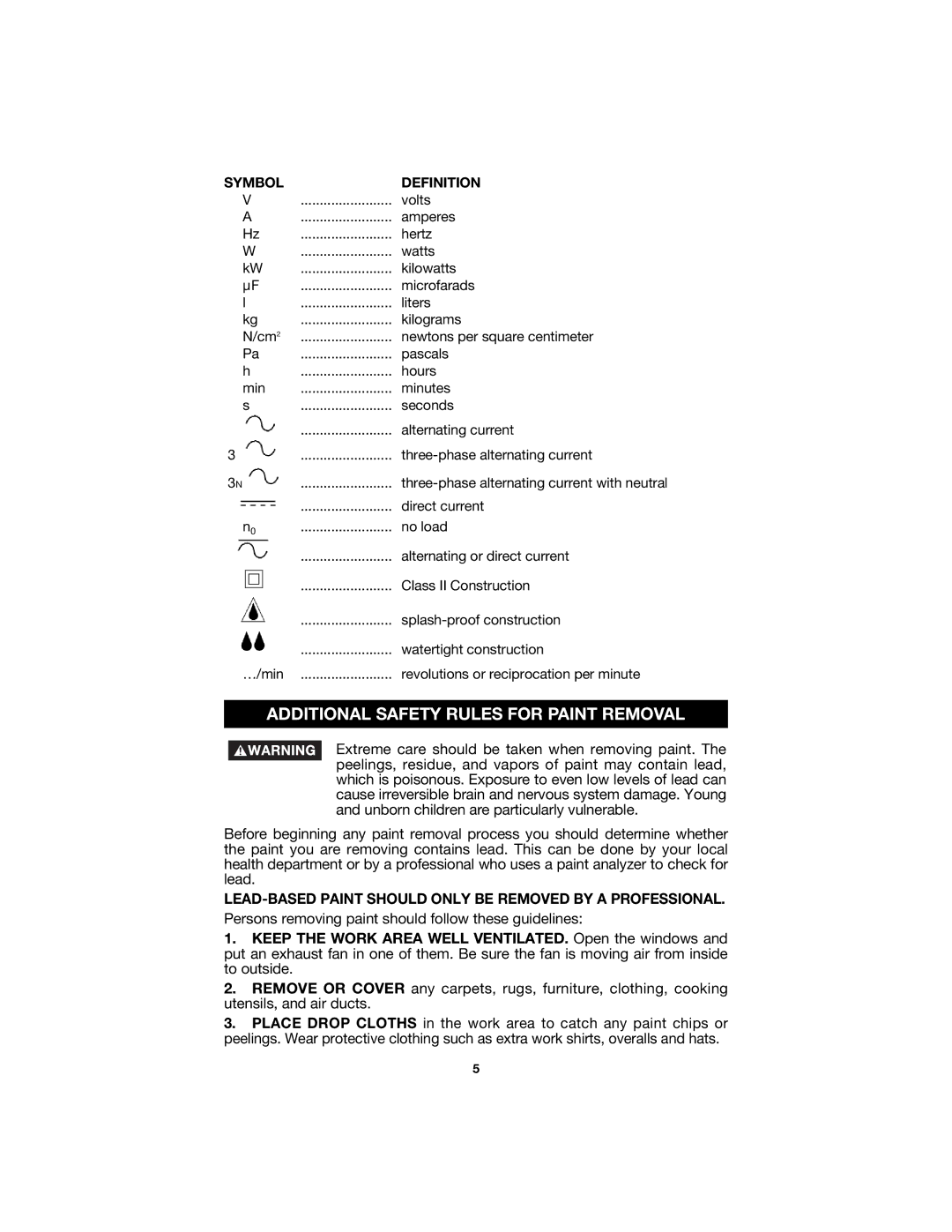
SYMBOL | DEFINITION |
V | volts |
A | amperes |
Hz | hertz |
W | watts |
kW | kilowatts |
µF | microfarads |
l | liters |
kg | kilograms |
N/cm2 | newtons per square centimeter |
Pa | pascals |
h | hours |
min | minutes |
s | seconds |
........................ | alternating current |
3 | |
3N | |
........................ | direct current |
n0 | no load |
........................ | alternating or direct current |
........................ | Class II Construction |
........................ | |
........................ | watertight construction |
…/min | revolutions or reciprocation per minute |
ADDITIONAL SAFETY RULES FOR PAINT REMOVAL
Extreme care should be taken when removing paint. The peelings, residue, and vapors of paint may contain lead, which is poisonous. Exposure to even low levels of lead can cause irreversible brain and nervous system damage. Young and unborn children are particularly vulnerable.
Before beginning any paint removal process you should determine whether the paint you are removing contains lead. This can be done by your local health department or by a professional who uses a paint analyzer to check for lead.
LEAD-BASED PAINT SHOULD ONLY BE REMOVED BY A PROFESSIONAL.
Persons removing paint should follow these guidelines:
1.KEEP THE WORK AREA WELL VENTILATED. Open the windows and put an exhaust fan in one of them. Be sure the fan is moving air from inside to outside.
2.REMOVE OR COVER any carpets, rugs, furniture, clothing, cooking utensils, and air ducts.
3.PLACE DROP CLOTHS in the work area to catch any paint chips or peelings. Wear protective clothing such as extra work shirts, overalls and hats.
5
